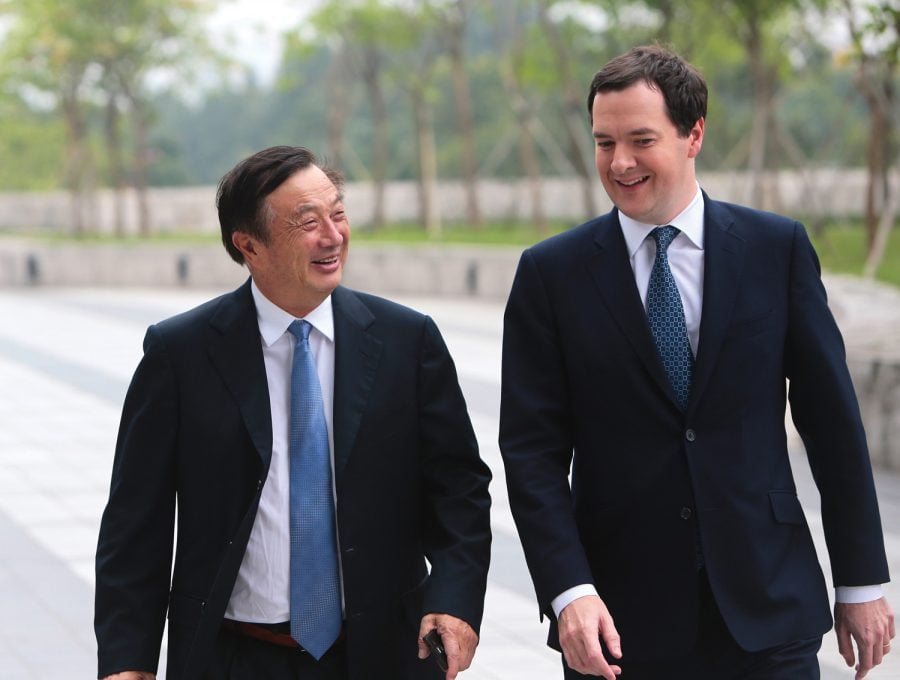United States fears growth of China’s Huawei
Huawei CEO Ren Zhengfei calls out the United States for the pressure being put on the Chinese tech giant.//photo courtesty of HM Treasury/Flickr
On March 29, Huawei, a private Chinese technology company, criticized the United States for having a “loser’s attitude” in light of the release of the Huawei P30 and P30 Pro product family.
Equipped with 5G technology, the P30 series released on March 26 in France. The products will be available via Amazon and other service providers in the upcoming weeks. Despite American allegations that Huawei devices may be used for Chinese monitoring, the P30 smartphone has been praised in the market for its advanced camera and Google AI-optimized interface.
Matching the United States, the United Kingdom has also responded harshly to new technology from the Chinese company. Huawei officials have spoken out about the backlash.
“We chose to have our voice heard at this moment because the U.S. government considers us a threat to national security,” stated Zhengfei Ren, founder of Huawei. “Why is Huawei being singled out?”
In late 2018, Meng Wanzhou, Ren’s daughter and the CFO of Huawei, was arrested in Canada for violations of Iran sections. Ren degraded her arrest as a politically motivated attack on Huawei’s innovation in the technological industry.
Even with American warnings across North America and Europe about the possible usage of Huawei products for spying, the company was able to gross over 100 billion dollars of revenue in 2018. This remarkable feat places Huawei on top of both Apple and Samsung in terms of growth.
Huawei was also able to slide past Apple as number two in phone sales. However, Huawei officials did recognize that the actions of the United States did have a short-term effect on Huawei’s business.
The conflict between Huawei and the United States gained mainstream media coverage in 2018 when Huawei lost the support of AT&T, a major mobile carrier. Huawei also lost the retail support of Best Buy in early 2018 and several major nations announced that they would not integrate or carry the 5G technology, including Japan and Australia.
Although Huawei is a private enterprise, the United States has underscored the amiable relationship between the Chinese government and the company.
Students at Guilford weighed in on the matter and expressed their perspectives on the international issues between China and the United States.
“Other countries besides the United States are forming a larger influence and impact in the global market,” said first-year Rabia Kang. “I am not surprised to see Huawei rise as a top competitor. Globalization is another big factor to its successes. Some cynics could say we discourage foreign brands like Huawei to diminish economic competition and eliminate threats to internal security.”
Students also questioned the possible hypocrisy of actions taken by the Trump administration.
“I feel like Trump is trying to silence other companies to make the United States a super dominating country,” said junior Kisha Jones. “It is ironic because the U.S. obviously has spyware, and that makes me question which phone companies in the U.S. are being used to spy.”
Although American actions against Huawei may seem excessive, the Chinese government adopted a similar method back in 2014 when Windows 8 was banned from all government systems.
While the Chinese administration provided no explanation for that action, more attention has been placed on the current issue due to the ongoing negotiations for a trade deal between the United States and China.
As trade deal discussions continue between American and Chinese diplomats, many analysts have noted that the success of Huawei products has not been largely affected.
However, the emergence of Huawei as a dominating technology enterprise may impact the trade deal between the competing superpowers.









